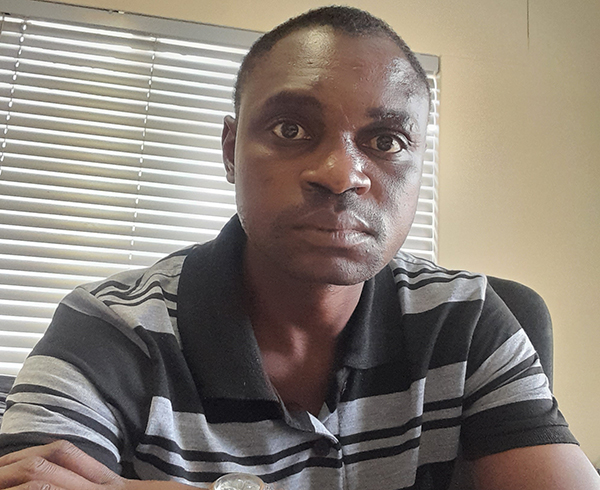Gift Kasika
Democracy is a form of governance, where people have the authority to choose governing officials. It is widely regarded as one of the best forms of governance as it promotes and upholds human rights and many other privileges.
However, the relationship between democracy, the abundance of natural resources and economic development is a matter of concern, especially in Sub-Saharan Africa.
I would hereby like to share some of the study findings with regards to this relationship. A recently-completed study revealed that a combination of democracy and the abundance of natural resources is less likely to steer a country to economic prosperity. In short, a country rich in natural resources is less likely to prosper when administered under democracy, compared to other forms of governance. This specific study was looking at a sample of over 174 countries across the world, and unfortunately it ended with such an unpleasant conclusion.
Natural resources such as oil reserves are more likely to bring economic development in a country administered under either dictatorship or monarchy.
There are reasons behind this, but it is better not to mention them here. This conclusion was made based on an observation of a number of countries in the Middle East and Sub-Saharan Africa. The findings are not limited to oil reserves alone, but also applies to all other natural resources, including gas, minerals and marine resources.
The examples mentioned include countries such as Iraq and Libya. It’s reported that those two countries were economically progressing with their oil reserves when they were administered under dictatorship. But when they switched to democracy, their oil reserves became a curse, and people in the two countries are facing constant civil unrest and corruption allegations.
The situation is even worse in Libya, where they now have two different governments and three conflicting parliaments. It is widely believed that the Democratic Republic of Congo (DRC) is the country with the most natural resources than any other country in the world. Instead of progressing economically, the country is facing endless civil unrest and corruption allegations.
Almost every week, Namibia is receiving refugees from the DRC via the Wenela border post. Those who travel can confirm that the DRC has the worst road networks, compared to most African countries.
A good example in support of this theory is that of an oil-rich Nigeria under the leadership of Muhammadu Buhari. Between December 1983 to August 1985 when Buhari ruled the country under dictatorship after he came to power through a military takeover, Nigeria experienced economic prosperity, and was considered stable and attractive for foreign investments.
Nigeria was considered among the best in Africa, but from May 2015 when the same Muhammadu Buhari came back to power under democracy, Nigeria is experiencing economic hardship, with endless corruption allegations combined with the emergence of militia groups such as Boko Haram and Islamic State.
A democratic governance administering naturally is more likely to result in a civil unrest and corruption, which work against the economic potential of the country.
Technological development and democracy
The same study concluded that democracy goes hand in hand with technological development. In short, a democratic country is more likely to prosper if they invest more in higher education in order to promote technological breakthroughs.
Reference in this regard was drawn from countries such as Rwanda, Singapore, South Korea, Japan, and the list goes on. These are countries with limited natural resources, but which have achieved high economic prosperity attributed to the productivity of their higher education systems.
Rwanda is an African country producing high-tech products, including cellphones, accessories and automobiles and spares. Namibia ought to follow suit, and concentrate more on developing higher education institutions in order to reach a point whereby we are able to produce high-tech products. We also have to invest in value- addition. We are focusing more on the extraction of natural resources (mining and fishing), and exporting raw products without significant value-addition.
Some of these industries have been hit by corruption scandals, and this is because it’s easy to manipulate benefits from natural resources for self-enrichment, which support the conclusion of the above study. There are two motives for self-enrichment in a democratic set-up, which leads to corrupt practices. But for now, it is better not to mention them because they are sensitive.
Recently, an estimated 11 billion barrels of oil reserves have been discovered off Namibia’s coast, with production expected within the next four years. Oil is more likely to ignite civil unrest if not administered properly, as has happened elsewhere. In most cases, natural resources are a curse and not a blessing to the host nation.
The above discussion doesn’t, however, completely rule out the possibility of economic prosperity from resources under democracy. There are good examples such as Botswana, who are managing with their diamond reserves. Botswana extracts diamonds and imports raw diamonds from neighbouring countries, and adds value to them before exporting overseas. On the other hand, Angola had a long-term civil war attributed to their diamond reserves.
This discussion was meant to enlighten the result of a study, and to highlight the experiences elsewhere. There is a need to upgrade our higher education institutions in order to diversify our economy. After all, natural resources have a limited supply, and there will come a point when they will be depleted. We also have to prioritise value- addition to the natural resources we are exporting.
At the moment, it’s easy to conclude that the government is not prioritising industrial upgrading, just by looking at the annual budget being allocated to the ministry of trade.
This is the ministry entrusted with the responsibility of upgrading the country from a middle-income country to a higher-income one but it is being allocated a budget which is not enough for that purpose.


